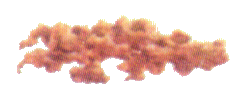Copyright © 2007-2024 Dr. Weyrich.
General: The information on this site is provided on an "as-is" basis,
without any warranty regarding the information or opinions presented.
Dr. Weyrich disclaims liability for damage resulting from the use of this information.
FDA: The information on this site is for educational purposes only.
It is not intended to diagnose, treat or cure any disease or illness.
The statements on this website have not been evaluated by the Food and Drug
Administration.
If you have a health concern or medical condition, consult a licensed
healthcare provider.
Dr. Weyrich is a physician licensed to practice as a Naturopathic Medical Doctor
(NMD) in Arizona.
FTC: Links to external web sites that are not under the control of
Dr. Weyrich are flagged with a small image of the world.
Dr. Weyrich may earn a nominal sales commission from purchases
made on external web sites such as Amazon. Links to these sites are flagged by
a yellow dollar sign. Links to external sites are for informational purposes
and do not represent recommendations to purchase. When possible, buy local.
Dr. Weyrich believes that the information contained on external web pages linked to is
accurate, but all external sources are subject to change and may be susceptible to
various political or world-view biases. This is true for Wikipedia, peer-reviewed
literature, the mainstream press, government, commercial, and alternative news sites.
In all cases,
caveat emptor - trust but verify.
HIPAA: This web site does not collect personally identifiable information,
and does not use cookies. Dr. Weyrich has no control over external web sites.
Phone for Dr. Weyrich:
 (888) 391-0414
(888) 391-0414

